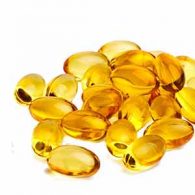Are Omega-3s Safe While Breastfeeding?
Is it safe for me to take omega-3s while I’m breastfeeding?
Supported By Science
Absolutely yes! It’s not only safe, it’s necessary – for both you and baby. As you know from our books, we base our advice not only on our personal experience of raising many children, but it also must be strongly supported by science. And, the relationship between breastfeeding and omega-3s shines with much science behind it.
Here’s a list of my favorite studies:
- When researchers studied a group of children who were breastfed as infants, they found that the duration of breastfeeding positively correlated with a child’s IQ at six-and-a-half years of age.
- Researchers found that the content of DHA in breastmilk of North American mothers tends to be lower than in many other countries. Scientists believe the reason is that mothers who eat the standard American diet (SAD) have milk that is considerably lower in omega-3s than breastmilk made by women in cultures who eat more seafood. In a 2006 study of the DHA content of breastmilk of mothers from nine countries, the DHA was highest in breastfeeding mothers in Japan and the Artic cultures and lowest in Canada and the United States.
- Research shows that breastfeeding mothers who take omega-3 supplements enjoy a higher content of EPA/DHA in their breastmilk.
- Many of the increased health benefits of breastfed versus formula-fed babies are attributed to the higher omega-3 fat content in mother’s milk than what is present in infant formula.
Looking at the above research you can see why your milk deserves the title of “smart milk.”
Good Science and Common Sense Usually Go Together
A baby’s brain grows the fastest in the last trimester of pregnancy and the first two years after birth. Omega-3 EPA and DHA are the smartest fats for a growing brain. Therefore, it makes sense for a breastfeeding mother to take omega-3 supplements while breastfeeding.
What’s Good for Baby is Good for Mommy
One of the most recent theories of postpartum depression is an omega-3 insufficiency. If omega-3s are the smartest fats in the brain, a deficiency of omega-3s, many researchers believe, can contribute to postpartum depression. The mechanism seems to be that when there’s not enough omega-3s in mother’s diet the “little sucker” gets first dibs on the omega-3s because baby’s brain is growing so fast. As a result, baby sucks the omega-3s out of mom, and mother is left with an omega-3 insufficiency – a contributor to postpartum depression.
Dosage Guidelines
As a general guide, take a gram (1,000 mg.) a day of combined EPA/DHA. To get a sufficient amount of omega-3s for you and your baby, you would need to eat three of your fistfuls of wild salmon per week, which you probably don’t. Therefore, in our medical practice we suggest “a gram a day” of an omega-3 supplement. On our website, AskDrSears.com, you will find trusted brands that we recommend, both a fish oil source and a vegan algae seafood source.
If you want to learn more about this topic, I suggest reading book written my husband, Dr. William Sears, and my son, Dr. James Sears: The Omega-3 Effect.
Martha is the mother of Dr. Bill’s eight children, a registered nurse, a former childbirth educator, a La Leche League leader, and a lactation consultant. Martha is the co-author of 25 parenting books and is a popular lecturer and media guest drawing on her 18 years of breastfeeding experience with her eight children (including Stephen with Down Syndrome and Lauren, her adopted daughter). Martha speaks frequently at national parenting conferences and is noted for her advice on how to handle the most common problems facing today’s mothers with their changing lifestyles. Martha is able to connect with both full-time, stay-at-home mothers and working mothers because she herself has experienced both styles of parenting. Martha takes great pride in referring to herself as a “professional mother” and one of her favorite quips when someone voices their concern about her having eight children in an already populated world is: “The world needs my children.”

